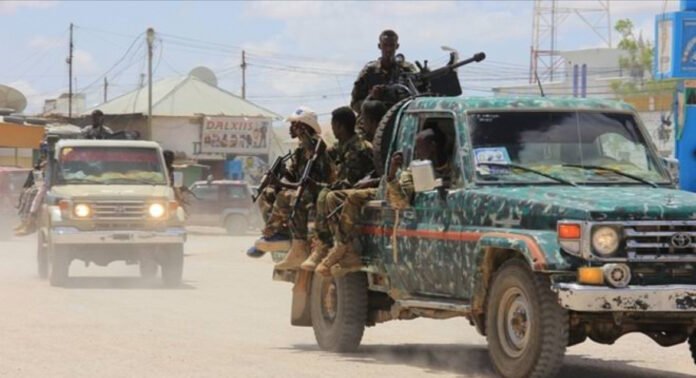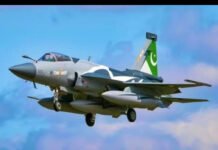By Horn Africa News
Dhahar – A deadly confrontation broke out this afternoon in Dhahar district, Sanaag region, between Puntland’s elite Puntland Maritime Police Force (PMPF) and heavily armed militias, reportedly backed by regional politicians from Sanaag. The hours-long clash left at least four Puntland soldiers dead and ten others seriously wounded, with growing fears of further violence.
Root Cause of the Confrontation
Local sources report that Puntland forces arrived in Dhahar to dismantle illegal checkpoints allegedly set up to extort residents—an issue that had sparked increasing public complaints. As the security operation began, it was met with fierce resistance from clan-based militias, resulting in a heavy exchange of gunfire and the displacement of large numbers of civilians from Dhahar and its surrounding areas.
Mounting Political Accusations
The clash has intensified already simmering tensions in the region, with both sides trading serious political accusations. Traditional elders from Lasanod, originally from Dhahar, strongly condemned the assault, describing it as a deliberate attack on communities sympathetic to the self-declared SSC-Khaatumo administration.
One elder declared
“This is an unprovoked assault targeting local people who simply support the administration they believe in. President Said Abdullahi Deni of Puntland bears direct responsibility for this war.”
Puntland Accuses Federal Government of Meddling
In response, the Puntland administration pointed fingers at the Federal Government of Somalia, accusing it of covertly funding and encouraging the armed groups fighting Puntland forces. Puntland’s Minister of Interior, Abdi Farah Juha, stated:
“We strongly condemn the Federal Government for inciting conflict, stirring social unrest, and destabilizing Puntland using international aid funds. This is a direct betrayal of Puntland’s efforts in combating terrorism.”
Town on Edge as Tensions Mount
Tensions in Dhahar remain extremely high. Both Puntland troops and local militias are still stationed on the city’s outskirts, and residents fear renewed clashes could erupt at any time. Most civilians have already fled the area, fearing for their safety amid the uncertainty.
Reports suggest that no political resolution has yet been reached, and the risk of continued fighting looms large. Without immediate peace talks and political compromise, the situation threatens to spiral further out of control.
Conclusion
The deadly Dhahar confrontation highlights the fragile security and political landscape in eastern Somalia. The divergent narratives between Puntland and the Federal Government over the incident pose a serious threat to national stability. Urgent diplomatic engagement and local reconciliation efforts are crucial to prevent the escalation of this conflict into a broader regional crisis.





